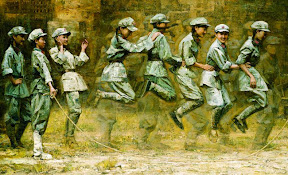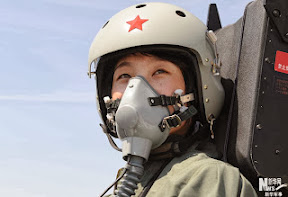The following May 13 OECTA Collective Bargaining Update appears was found online. It was sent out in "secret" to tens of thousands of teachers across the province. It is presented here for our ongoing open forum, teacher free speech info, and discussion purposes. Please see my Commentary below, and have your say!
WHEN WILL OECTA TAKE ACTION?
As OECTA members watch their counterparts in other teacher unions commence
strike actions across the province, some may wonder why OECTA hasn’t commenced
strike action given our overwhelming strike vote.
This is a result of legislative requirements. OECTA was delayed, and as a
result, is following different timelines. Nonetheless, OECTA is in constant
contact with our sister affiliates and is working closely with them.

WHAT HAPPENED?
In 2013, the Minister of Education introduced provincial bargaining legislation
in the Ontario Legislature. The legislation, called the School Boards
Collective Bargaining Act, 2014 (or Bill 122), mandated a two-tiered
approach to bargaining, where certain items are negotiated at the provincial
bargaining table, and local specifics are bargained between individual school
boards and the union districts.
If both the union side and the school trustees/government teachers’ side can
reach agreement on which issues are local and which are provincial issues,
bargaining can commence. According to Section 28 of Bill 122, parties may refer
issues that cannot be agreed upon to the Ontario Labour Relations Board (OLRB).
The affiliates on the public side of the equation were able to reach the
necessary agreements with the public trustees and government, thereby avoiding
any OLRB hearings.
OECTA’s provincial bargaining team met with the employer side of the provincial
bargaining table (representatives of the government and the Ontario Catholic
School Trustees’ Association) in October 2014 to establish which matters would
be dealt with at the provincial bargaining table. Although both sides agreed on
17 items, they did not reach agreement on the five matters to be included in
the scope of provincial bargaining (matters relating to sick leave, staffing
provisions, etc.).
Since an agreement could not be reached, the parties referred the matters in
dispute to the OLRB to make a determination. We did not receive a ruling until
February, putting us behind the other affiliates in terms of the bargaining
process.
Meanwhile, both OSSTF and ETFO moved ahead on their own different paths. OSSTF
is in mediation at the central table. At the same time in local OSSTF
negotiations, conciliation was sought and ‘no board’ reports obtained in
several areas. Currently, OSSTF locals in Durham, Sudbury and Peel are on a
full withdrawal of service. ETFO chose to apply for conciliation at the central
table and received a ‘no board’ report from the Minister of Labour, enabling
them to initiate province wide strike actions. ETFO began “phase 1” of a
work-to-rule strike action on May 11.

WHAT’S NEXT FOR US?
While OECTA members provided their union with a strong strike vote mandate of
94.2% on April 24, the Association is committed in trying to reach a negotiated
settlement. Most recently, OECTA announced it would continue to bargain, with
the assistance of the Ministry of Labour, in an attempt to move OCSTA/trustees
off of their entrenched positions – similar to OSSTF’s provincial bargaining
approach.
Our upcoming bargaining dates are May 21, 22, 28, 29 and June 4, 5, 6, 22, 23,
24, 25 and 26.
If we are unable to secure a fair and just agreement, we will move forward and
apply for conciliation. This would likely place us in a provincial strike
position in September, a more realistic and tactically superior time to
commence any type of action than mid-June. This is the earliest OECTA would be
in a position to start any action if we filed for conciliation immediately,
because of the mandatory procedures and timelines under the Ontario Labour
Relations Act.
COMMENTARY
Fair is fair. OECTA deserves to be heard on the thorny issue of why the Catholic teachers are still in class and schools open, while their public counterparts commence strike action. Past experience, however, requires one to be quite critical in assessing the credibility of their claims.
In 2012, OECTA teachers, despite OSSTF and ETFO claims to the contrary, were reassured that no deal was in the works as they left for summer holidays. On July 5th they did indeed sign a deal, the infamous OECTA MOU, over which the members had no ratification vote. [1]
All Ontario's teachers suffered when OECTA agreed to contract stripping and concession bargaining, destroying decades of hard fought CB gains with the stroke of a pen. In the months that followed, the OECTA MOU became the OLP Road Map or blue print for the same cuts that the OLP then dished out to the rest of our teacher and Education Worker union colleagues across the province, in AEFO, ETFO OSSTF and CUPE! [2]
Ironically, the OECTA secretariat fared much better with their own contract. They secured comfy raises for themselves with their sick days and gratuities intact, all of which they had given away, without a ratification vote, when it came to the due paying members. An unsuccessful OLRB run at further padding their own plan on the membership's dime proved unsuccessful. Nonetheless it still provided insult to go with the injury suffered by the rest of the province's teachers. [3]
In 2014, we are again faced with an OECTA CB redux team made up with many of the same players back at the provincial bargaining table. All opposition has seemingly been quite thoroughly jackbooted and silenced by the tight knit oligarchy now ruling the OECTA roost. It would be foolish not to watch and question everything OECTA does very carefully. Do you still believe in and support a democratic, teacher union movement in Ontario? Then regretfully, OECTA which has no credibility left, leaves those hopeful, remaining reformers among us without any other choice! [4]
It is interesting to read OECTA's claim above when it states that they are still in contact and working closely with the other teacher affiliates. If so, their members had best watch out! If not, then what's really being said behind closed doors at your executive level? How does ETFO and OSSTF square off the awkward fact that the membership are meanwhile out on the street, or involved in a controversial WTR? With the public schools closed? While parents decide which school system to register their kids in for next fall?
Surely, OECTA won't want to be the first past the post in signing a new contract in the current round of negotiations. Another boner will be too much for even them to try to hide, deny or explain away. However, is it just happenstance that OECTA had to go the lengthy OLRB route? Knowing full well it would cause a lengthy delay, while the other affiliates cut to the chase? Then blame it all away on the the Ontario Labour Relations Act?
Are OECTA to be believed?
FOOT NOTES:
1] Coincidence? In late June 2012, OECTA President O'Dwyer, now a Contract Services Officer on the current provincial negotiating team [Here], denies OSSTF and ETFO's claim that a "secret deal" is imminent. [Yes][No] Surprise! On July 5th, the OECTA MOU is ratified on the members behalf, in their absence, after everyone had left for summer holidays! [Here]. Fool us once, shame on you .....
2] The OECTA Road Map or "Putting Students First Act" is @ August 2012 Also see "Comparing the OECTA and OSSTF MOU's" @ April 2013 ETFO's MOU is @ June 2013
3] The OECTA Secretariat 2012-14 contract is @ Download The 2012-14 OECTA MOU that they helped negotiate for the membership is @ Doc Compare? Contrast? Conclusion?
4] See "OECTA: Manufacturing Consent" @ Here
YOUR COMMENTS:

































